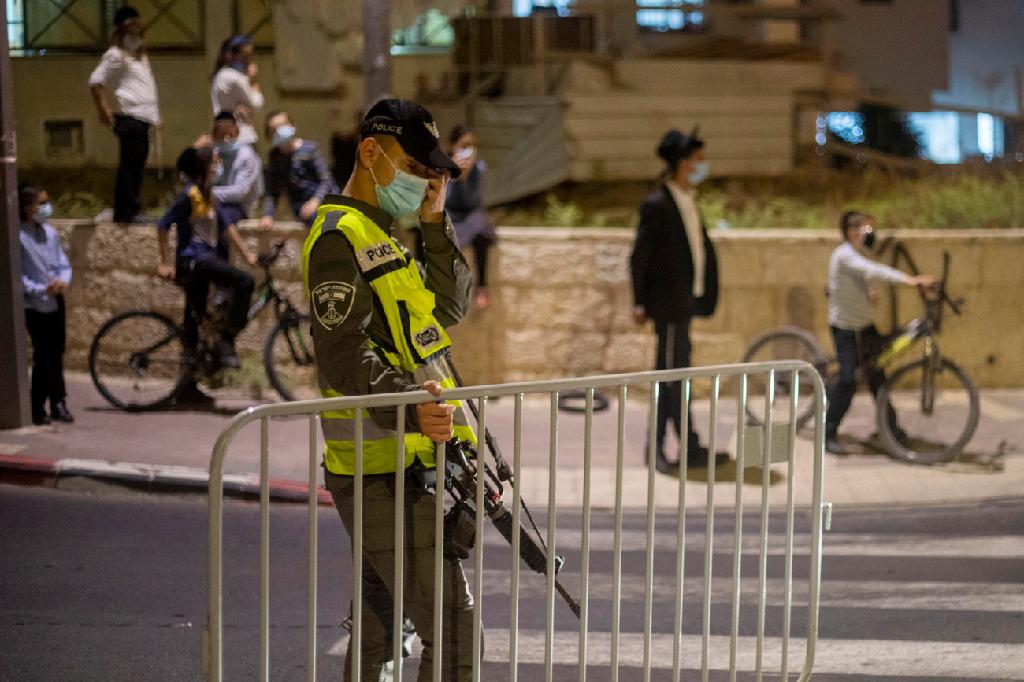"Only the public can beat the coronavirus," Prof. Ronni Gamzu, the government-appointed coronavirus czar, said Sunday after the government agreed to impose a three-week lockdown on the entire country.
He was not wrong. For no matter what the government decides, it is ultimately up to the members of the public to agree to abide by the directives.
4 View gallery


A Border Police officer implements partial curfew in Beit Shemesh last week
(Photo: AP)
But in order to bring Israelis on board and convince them they can beat the pandemic, there must be trust in government.
But that trust has been increasingly compromised as details emerge from the ministers' deliberations about the political pressure and coalition considerations that came into play when deciding on mitigation measures.
During the first wave of the pandemic, the public had a disciplined approach to the lockdown imposed by the government. Israelis felt solidarity with their neighbors and expressed trust in their leaders and the decisions being made.
There was also widespread fear of an unknown pathogen and the danger it could pose.
4 View gallery


Anti-government protesters block roads at Ben-Gurion Airport as Prime Minister Benjamin Netanyahu prepared to leave for the U.S. on Sunday
(Photo: Moti Kimchi)
But in contrast, the second lockdown comes at a time of widespread criticism of Prime Minister Benjamin Netanyahu and his cabinet, accompanied by a reluctance to accept their diktats without question.
The unified messaging of the first wave of the virus was completely shattered by the time the second wave appeared.
Netanyahu's appearance in front of the television cameras on Sunday did little to enhance public trust. He presented a rosy picture of the economy – too rosy to be believed - and as he has often done, he blamed others for any failures.
4 View gallery


Prime Minister Benjamin Netanyahu claimed Israel is fairing well economically during a Sunday night televised address
(Photo: Yoav Dudkevitch)
The success or failure of the new lockdown will become clear on Friday, the first day of restrictions and the eve of the Jewish New Year. The amount of traffic on the roads will indicate whether or not Israelis have ignored directives and traveled to enjoy a holiday meal with family.
Small business owners, many of whom had yet to recover from the financial ramifications of the first lockdown, have threatened to ignore the new measures and remain open for business.
4 View gallery


Protesters calling for the prime minister's resignation at a demonstration in Jerusalem
(Photo: Amit Shabi)
Roee Cohen, the president of the Israel Chamber of Independent Organizations and Businesses, threatened rebellion on the grounds that while the coronavirus is a serious matter, financial ruin is too.
The government will soon see if the public is willing to once again put its faith in a leadership that has failed them so miserably.

